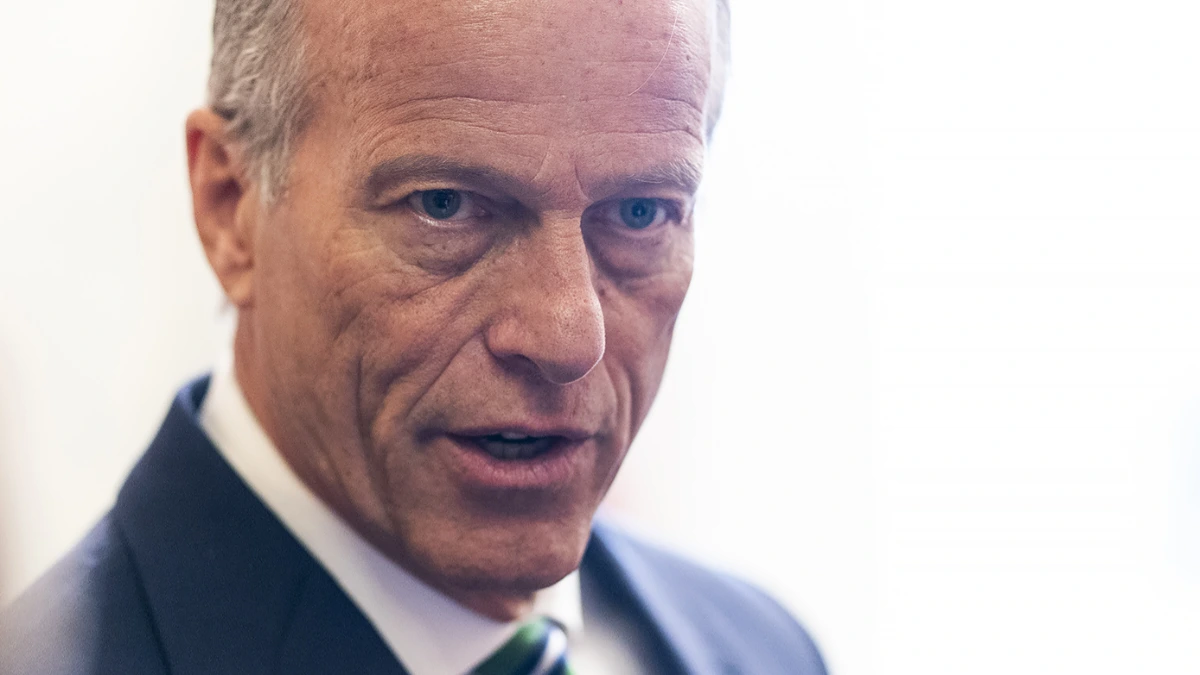WASHINGTON — A group of moderate Democratic senators on Sunday signaled readiness to vote for a bipartisan spending package to reopen the federal government, fracturing their party’s unity and potentially ending the longest shutdown in US history.
After emerging from a closed door meeting, Senators Jeanne Shaheen of New Hampshire and Angus King of Maine said the group had secured enough support to advance a temporary funding bill, offering a breakthrough in a 40 day impasse that has left hundreds of thousands of federal workers furloughed.
“The pain this shutdown has caused across the country has changed minds,” King said. “We may not be getting everything we want, but it’s time to stop the bleeding.”
The proposal, brokered by a bipartisan coalition of senators, would fund the government through January and includes three additional appropriations bills for agriculture, military construction and legislative agencies through fiscal year 2026.
The move comes after weeks of deadlock between Democrats and Republicans over the future of Affordable Care Act (ACA) subsidies. Democratic leaders, led by Senator Chuck Schumer of New York, had refused to back any funding bill that did not include a one-year extension of the tax credits, which are set to expire at year’s end.
President Donald Trump and Republican leaders have resisted that demand, arguing the subsidies should be addressed separately. With public frustration mounting and essential services strained, moderate Democrats began to break ranks.
Senator Tim Kaine of Virginia, a key convert, said he would back the measure after securing protections for federal workers affected by the shutdown. “This legislation will reinstate employees who were wrongfully terminated and ensure everyone receives back pay,” Kaine said.
But Schumer remained opposed, telling reporters bluntly, “I am a no.” Representative Hakeem Jeffries, the House minority leader, echoed that stance, calling the standoff “a toxic mess created by Donald Trump and the Republican Party.”
Political analysts said the Democratic split underscores the mounting pressure on lawmakers to deliver relief to constituents as the shutdown’s economic toll grows.
“Shutdown fatigue has clearly set in,” said Dr. Laura Jennings, a political scientist at Georgetown University. “For moderate Democrats in swing states, continuing the standoff without progress on health care risks alienating voters who are more concerned about missed paychecks than about policy wins.”
Republicans, meanwhile, appear poised to capitalize on the divide. Senator John Thune of South Dakota, the GOP majority leader, has reportedly offered Democrats a future vote in December on extending the ACA subsidies a concession many progressives view as symbolic rather than substantive.
“This isn’t a victory for either side,” said David Morales, a budget policy expert at the Brookings Institution. “It’s a pragmatic move to get the government running again, but it delays the health care fight rather than resolves it.”
The shutdown, now entering its sixth week, has affected roughly 800,000 federal employees, many of whom have missed two paychecks. The Congressional Budget Office estimates that each week of closure costs the US economy about $1.4 billion in lost productivity and delayed spending.
Previous government shutdowns, such as the 2018 & 2019 impasse over border wall funding, lasted 35 days. The current 40 day closure marks a new record and has disrupted air travel, delayed food assistance to millions of families, and slowed small business loans backed by federal guarantees.
A new poll from the Pew Research Center found that 62% of Americans blame both parties for the standoff, while only 27 percent place responsibility solely on Republicans and 8 percent on Democrats.
Across the country, the human impact of the shutdown has been acute. In Virginia, home to one of the largest concentrations of federal workers, food banks have reported record demand.
“We’ve seen a 40 percent increase in first time visitors since the shutdown began,” said Maria Lopez, director of the Capital Area Food Bank. “These are people who never imagined needing help.”
Federal aviation workers have warned of safety concerns as staffing shortages intensify. “We’re working long hours with fewer controllers,” said Kevin O’Donnell, a veteran air traffic controller in Atlanta. “Morale is low, but we just want the government open again.”
Even within Democratic strongholds, voters appear divided. “I support affordable health care,” said Denise Hall, a nurse from Philadelphia, “but the shutdown has gone too far. People are suffering.”
If the Senate passes the compromise bill, the legislation would still need approval in the House and President Trump’s signature. The White House has not publicly indicated whether the president would sign the measure, though aides have suggested he might, given the absence of new spending increases or policy concessions.
The deal would maintain flat funding for most federal agencies and reject Trump’s proposal to slash programs like Food for Peace, which provides humanitarian aid abroad.
It also preserves funding for the Government Accountability Office, an independent watchdog that has challenged several of the administration’s spending decisions.
Analysts predict further intraparty conflict among Democrats as progressive lawmakers push to restore the ACA subsidies later this year. “This vote may reopen the government,” Jennings said, “but it won’t heal the ideological divide within the party.”
The looming Senate vote marks the most significant movement in weeks toward ending the record breaking shutdown. Yet the compromise exposes deep fractures within both parties Democrats over health care and Republicans over spending priorities.
As federal workers prepare for another missed paycheck, lawmakers face a narrowing path to restore public trust. The question now, experts say, is whether reopening the government will offer a political reset or merely a brief pause in a longer, bitter fight over the nation’s fiscal future.
